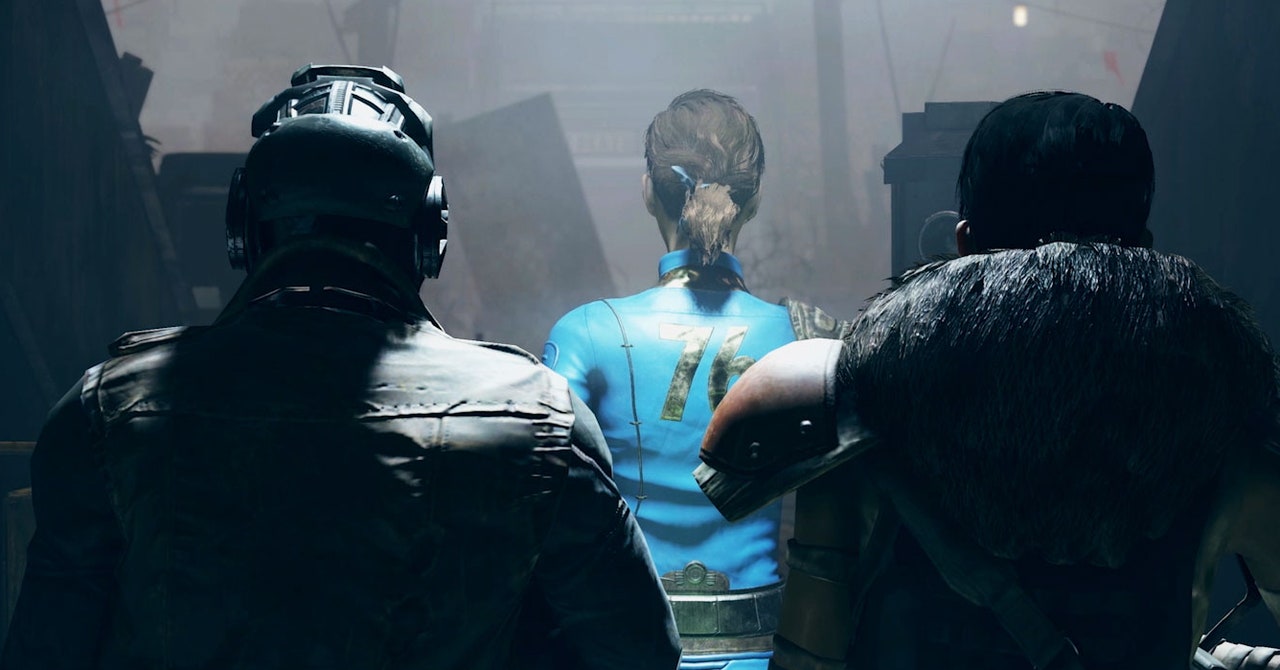In 1996, while making music for the Fox Family Channel, Inon Zur received a phone call from the man who would later become his agent. This man, Bob Rice, represented composers for videogames. He asked Zur whether he had any interest in the medium. Zur told him he didn’t know anything about videogames and that he wasn’t interested. But Rice was persistent. He pestered Zur. He asked him personal questions—what kind of music do you like? And what kind of music do you make? And what would you like to make? Zur saw how he could fend Rice off—he answered, truthfully, that he wanted more. The manic guitar shredding of Power Rangers Lost Galaxy and Big Bad Beetleborgs was fun but basic. Zur wanted to command orchestras. But what could videogames possibly offer?
WIRED UK
This story originally appeared on WIRED UK.
Then Rice told Zur something he did not know. He said that modern games need orchestras, and that in the future this need would grow. He furnished Zur with examples of recent Star Trek games. Zur was impressed. He thought, “Wow, if that’s the case, then let me try it.”
Zur’s first game would be a Star Trek title—Klingon Academy, a space flight simulator about an ambitious young Klingon attending war college (with Christopher Plummer starring as the malevolent General Chang!) The game is not well remembered. Still, the soundtrack should be—Zur was the first composer in videogame history to command the Seattle Symphony, a hundred-year-old American institution and full symphony orchestra. (Importantly, he also commissioned a bellowing Klingon choir: “men—very very harsh,” he says.)
Now, Zur scores the most prominent franchise of games about nuclear apocalypse—Bethesda’s Fallout. The protagonists of these games emerge from vaults—town-sized bunkers burrowed underground. They discover that the bombs have cremated our green world. Humans survive in thin grey cities. Mutants roam the bitter brown wastes.
For the first of these games, Zur sensed the story was dark and foreboding. He chose low brass and ominous percussion as lead instruments. Then the sequel incorporated—to many fans’ chagrin—a more personal story about a father and his family. Zur leant heavier into a climbing piano line to bring out this emotional connection. He experimented with untraditional instruments he called “artefacts”—like banging on garden furniture—”to evoke the scarcity the survivors found themselves within.”
In the most recent title, set against the long blue wall of West Virginia’s Appalachians, Zur blended guitars and solo strings, hiding motifs and nods to past themes and musical signatures—particularly the three ascending notes that have become the franchise’s signature.
Zur, who continues to compose for film, represents a new group of composers for blockbuster games, comfortable across mediums. Where films were once the most coveted medium, now talented composers view videogames on an equal footing.
“It’s not so much that film composers are flocking over to compose for videogames. It’s more that there’s a small but potentially growing class of more generalized ‘composers for media’ who love working on a variety of film, TV, and games,” says Danny Kelleher, founder and CEO of Laced Records, which specializes in digital and vinyl soundtrack releases for games. “It feels like videogame music is finally receiving the praise and mainstream recognition it deserves, and this is helping to attract more composers to the medium.”
These composers draw heavily on Hollywood’s orchestral language, but they have to reinvent it too. They must transform the passive music of film into the active music of videogames.
The most iconic piece of videogame music is also one of the simplest: Koji Kondo’s 1985 Super Mario Bros. theme, the swinging staccato boops a player hears as they guide Mario on his iconic journey rightwards through the Mushroom Kingdom.
Kondo’s is the most famous example of “chip music,” so named because it was written directly to the chip. The finest examples of this sound would emerge from Japan: usually 8-bit or 16-bit, meaning that the computer it was designed for could transfer only this number of bits of data at a time. Chip music is characterized by primitive limitations—the Nintendo Entertainment System (NES), for instance, was able to play only three notes simultaneously.
Not only was chip music foundational to other genres, like grime, the nostalgia it generates has become big business. Its simple melodies restore listeners to the vanished beauty of childhood and simpler times, when we could leave our homes without worry. “Nostalgia plays a huge part when it comes to selling soundtracks and games,” says Kelleher. “For example, we ideally want there to be a large number of people who fondly remember playing Tekken

